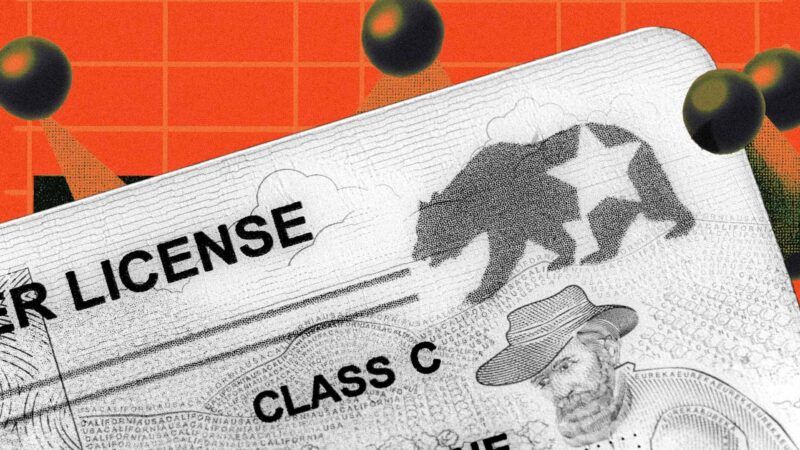Is REAL ID Actually Happening?
The law was passed 20 years ago, and enforcement finally looms.

Twenty years after it was passed, the REAL ID Act may finally be enforced. However, the decades between the law's passage and its enforcement show that, as a terrorism-prevention measure, it is hardly needed in the first place. Making matters worse, as more than a dozen states are less than 50 percent compliant, the law may make domestic air travel more difficult—or even impossible—for millions of Americans.
The REAL ID Act was passed in 2005 as part of a suite of post-9/11 laws aimed at boosting national security. The law was intended to make it harder to forge identity documents, requiring those seeking a driver's license or ID card to provide additional documentation proving their identity—like a valid passport or birth certificate—with compliant IDs having a star printed on them.
Over the past two decades, enforcement of the law has been delayed a whopping seven times. Most recently, the Biden administration delayed enforcement for two years, from May 3, 2023, to May 7, 2025. So far, no additional delay has been announced by Trump administration officials, but if 20 years of kicking REAL ID enforcement down the can is any indication, it's that an 11th-hour enforcement delay can hardly be ruled out.
These delays have frequently been justified by citing low compliance. In a press release announcing the 2023 delay, one official boasted that it would "give states needed time to ensure their residents can obtain a REAL ID-compliant license or identification card." However, this latest two-year extension hasn't led to widespread adoption.
According to a recent analysis from CBS News, data from earlier this month indicate that at least 17 states are less than 50 percent compliant with the law. In New Jersey, the state with the lowest compliance, just 17 percent of IDs are REAL ID–compliant. CBS reported that around 80 percent of recent domestic air travelers are showing up with a REAL ID, or an additional document, like a passport, that would allow them to travel after the law is enforced.
One reason why so many Americans don't have REAL ID–compliant identification is that many states have pushed back against the law, citing fears over creating a national registry of ID holders. For example, acceptable IDs weren't even issued in all 50 states until 2020—a staggering 15 years after the law was passed. "Some deny it, but REAL ID is emphatically a national ID. It is national in scope, knitting together diverse state systems into a system uniform with respect to its data elements and behind-the-scenes information sharing," wrote Jim Harper, a nonresident senior fellow at the American Enterprise Institute, in 2022.
In the service of preventing supposed terroristic threats—never mind that a REAL ID can presumably be forged like any other identity document—REAL ID requires Americans to allow their private information to be entered into linked state databases. As J.D. Tuccille pointed out for Reason in 2019, "Those linked databases contain the amassed, hacker-bait details of millions of identification documents necessary for air travel and access to government facilities."
Considerable privacy concerns aside, REAL ID doesn't even seem necessary. The country has been safe from catastrophic terrorism since the 9/11 attacks without the help of Real IDs. The law's enforcement 20 years after its passage would trade privacy for an, at best, hypothetical gain in safety.


Show Comments (31)